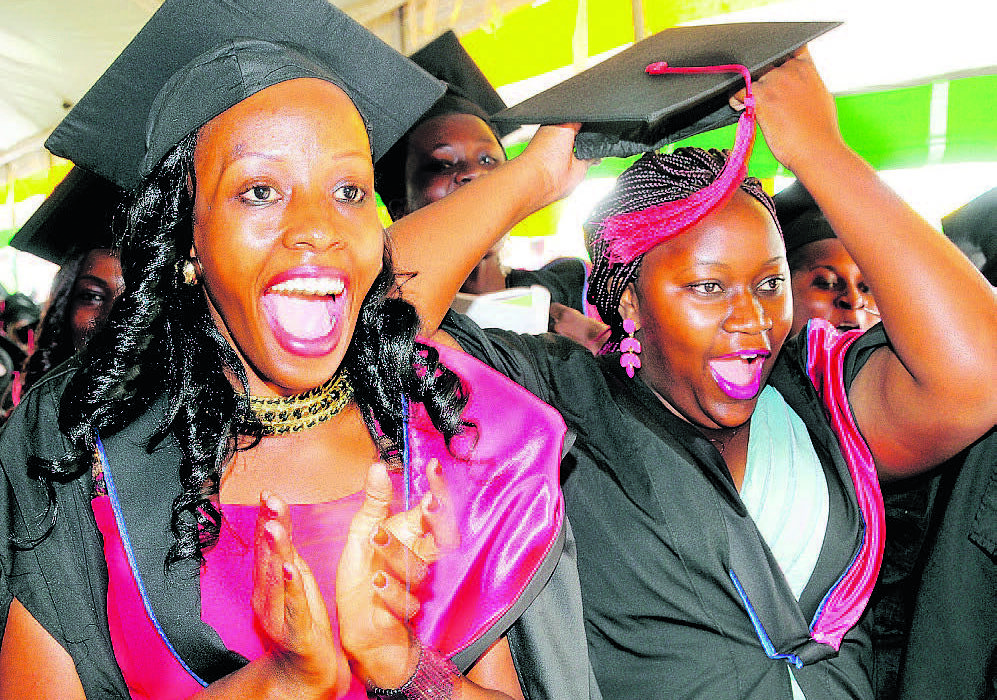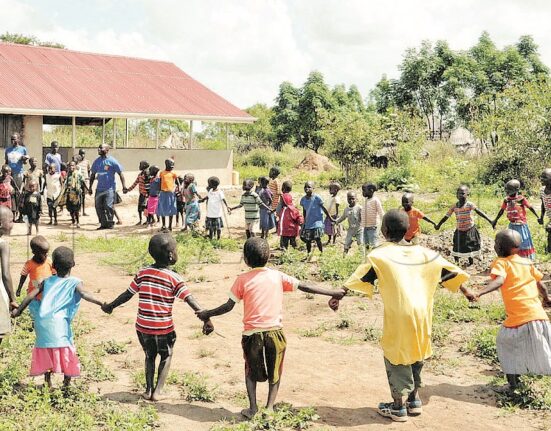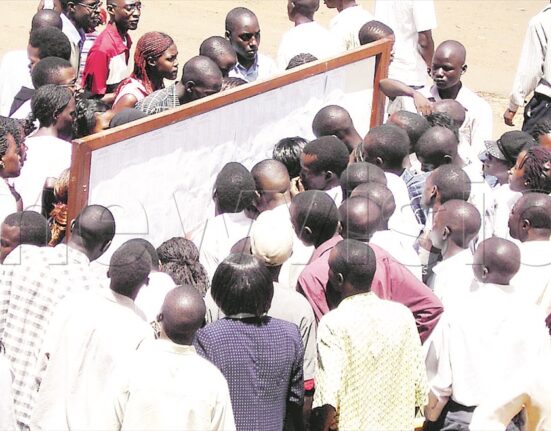Francis Emukule
The debate about whether the mode of delivering university education in Uganda needs to change rages on. Many have suggested that the system is outdated because it still lays emphasis on teaching theory and producing job seekers rather than employment creators.
They argue that a meaningful university education in a country which is hungry for jobs and innovation should place in the hands of students more practical skills than theory.
In his new book – Authentic University – Dr Lawrence Muganga, the vice chancellor of Victoria University, advocates for cutting-edge innovation in higher learning to revolutionalise training and bring it in line with the fast-changing world. Higher training, he argues, should be efficient and effective, flexible, affordable, and transformational. But how does this represent a transformative approach to higher education?
Muganga, a specialist in educational management and leadership, argues that Uganda is not bringing out the best in its young population because Ugandans have been trained to become workers rather than creative thinkers.
“The way we are trained is outdated and faulty. Students with restless minds and bodies far from being cultivated for their energy and curiosity are ignored or even stigmatised, with badly aligned examinations, ending up with messy consequences,” he argues. “We are educating people out of their creativity,”
He adds that the world has left behind universities and will not wait for them to keep pace with its ever-evolving information and communication technology in an increasingly entrepreneurial economy. In order for university education to keep pace with the fast-changing world, Muganga recommends what he calls an authentic university system of training.
Problem-solving
He defines authentic learning as real-life learning that encourages students to create a tangible product or project to be shared with the world or community. This kind of learning, Muganga says, is not based on memorising theory, but hugely depends on learning by doing.
Under this framework, the students’ assessment is based on the practicable attainment of skills and demonstrable mastery of concepts and exhibition of competencies.
This framework would allow students to learn by doing in a real-life environment rather than classroom-based learning. The components of the framework, he proposes, would include personalised learning, with each student receiving special interest from the tutor, focusing on their unique abilities, talents, interests, and potential.
“Imagine a time when students can eagerly and enthusiastically enter the world of postsecondary education without experiencing existential angst over choosing a major or fearing the limited career opportunities that lie ahead,” an excerpt of the book reads.
The form of learning proposed in the book emphasises problem-solving to encourage students to find solutions and monetise them, creating employment and improving the well-being of their communities. It also calls for the automation of all university operations, which would see students examined and have results transmitted to them electronically.

Bureaucratic bottlenecks
Many universities in the United States and Europe already do this. In Uganda, universities such as Makerere University, Uganda Christian University and Victoria University are building online learning systems to automate some of their operations. But the poor quality of the internet and infrastructure as well as cost remain one of the challenges.
“Similarly, a university will not need a hefty budget for buildings to house things like libraries and the purchase of shelves for hard copy books because an authentic university can have a digital library and avoid the billions needed for the construction of physical library facilities,” Muganga says. However, even universities that have automated most of their operations still have physical libraries.
Muganga also argues that while education systems in the developed world have evolved over the years, Uganda’s has not changed to reflect the current realities because it is mired in “intricate, outmoded bureaucracies”.
“The reality here is that the system of higher education is broken. It needs fixing,” he adds.
Connecting with students
Muganga says authentic learning would not only cater to the student’s personal and academic interests but also provide a realistic education tailored to their dream careers since “learners can get exactly what they want rather than what they think they will need”.
“Giving students exactly what they need saves time and money since they don’t have to waste time studying what they think they need without getting anywhere,” he adds. “Through personalised learning, a student is understood and guided on a career path that best suits his or her natural interests, and abilities,”
Muganga argues that universities nowadays fail to form personal connections “with each unique student that brings a diverse set of strengths, interests, skills and needs Ignoring the heterogeneity of the student body and enforcing mass-produced learning as they shuttle students along a programmed assembly line of lecture halls”
Dr Ann Mugunga, a management and communication specialist, says that while personalised learning could help students tap their potential, it could increase the cost of education. But she agrees that higher education needs to lay emphasis now on creating job creators instead of job seekers. Education generally, Mugunga argues, should skill people for “a life of problem-solving” to be able to address challenges that keep emerging in the world.
“Young people should be skilled for life rather than just the job market to create change in the world. There is a disconnect between what is being taught and what is actually being done. We need game changers who will push the agenda to change this,” Mugunga says. “The parents should know they produce the raw material and should play a role in determining how their children are educated,”
Gradual change
Commenting on Muganga’s proposals, the state minister for higher education Dr Chrysostom Muyingo acknowledges the need to revise university education. “We must rethink the country’s education, considering that a number of the things we have tried to implement over time are not working. We still have so many jobless and clueless graduates, after so many years of educating and investing in them. This must gradually change,” he adds.
Venansius Baryamureeba, the former vice-chancellor of Makerere University and proprietor of UTAMU University agrees that Uganda’s higher education needs change. “By changing our traditional universities, we can form a new future of higher education which parents and students admire to be part of. But we must embrace technology and pay attention to the needs of our societies by solving problems,” he adds.
Muganga’s concept of authentic learning in higher education institutions might sound appealing, but currently, no one knows for sure how long it could take to bring it to reality. Probably the changes at the lower secondary level, for instance, the recently introduced curriculum, which places emphasis on developing the learners’ competencies, represent a step in that direction.









Leave feedback about this